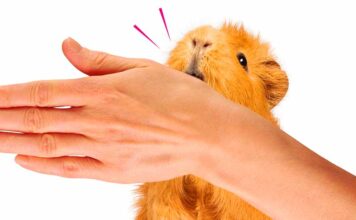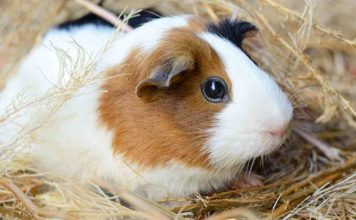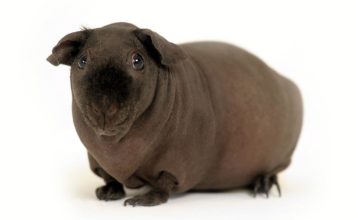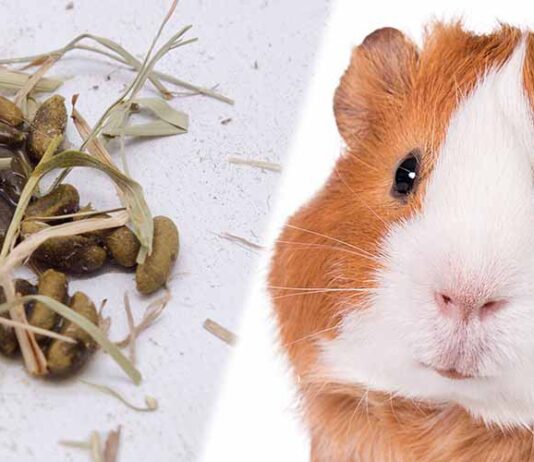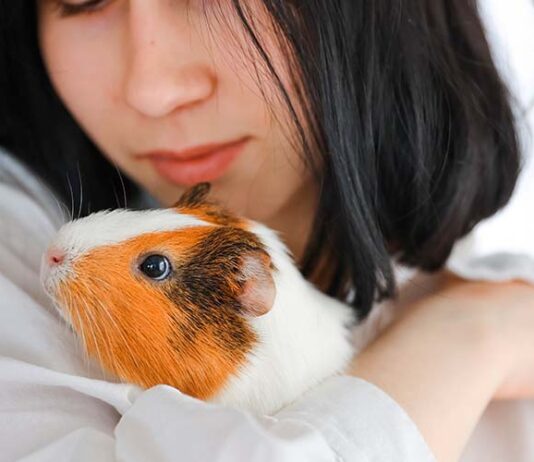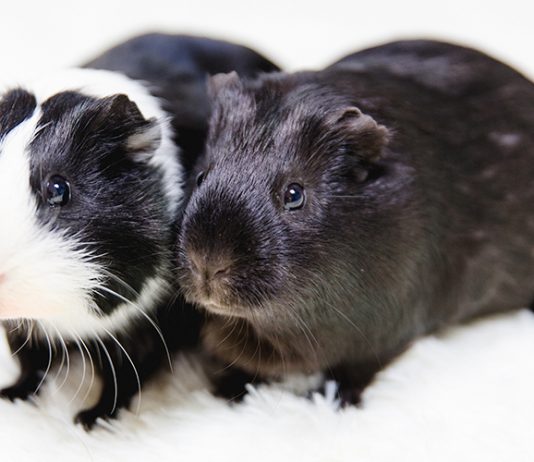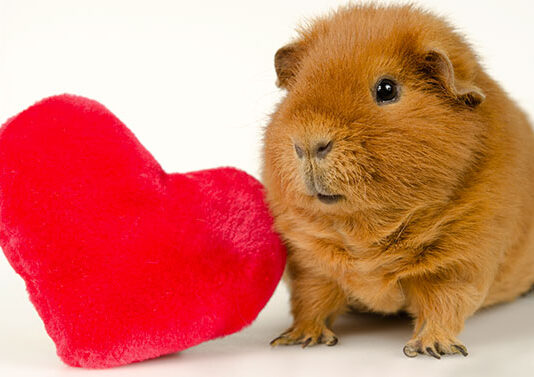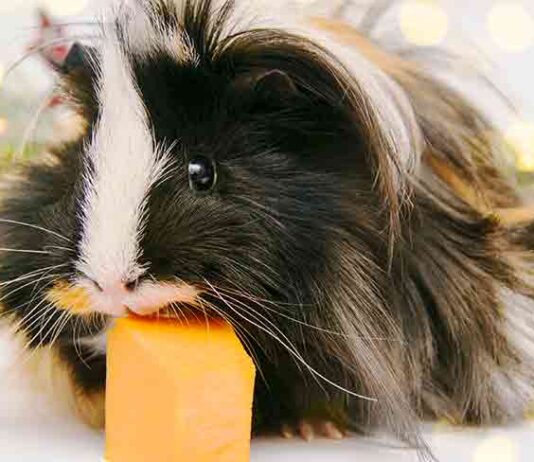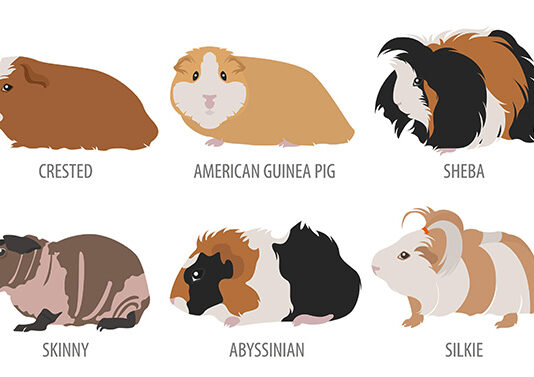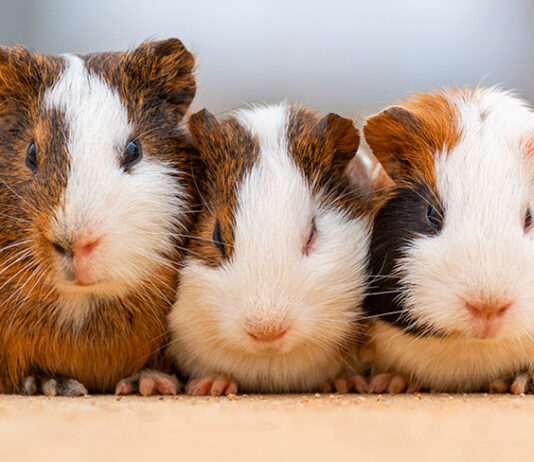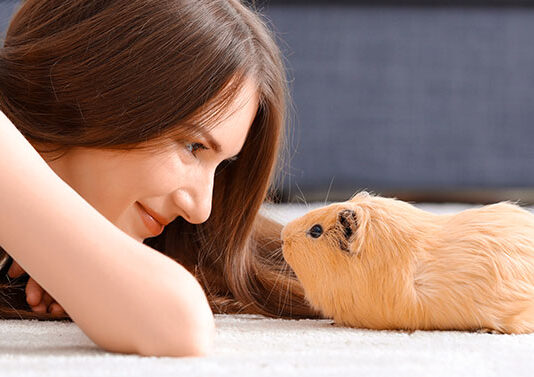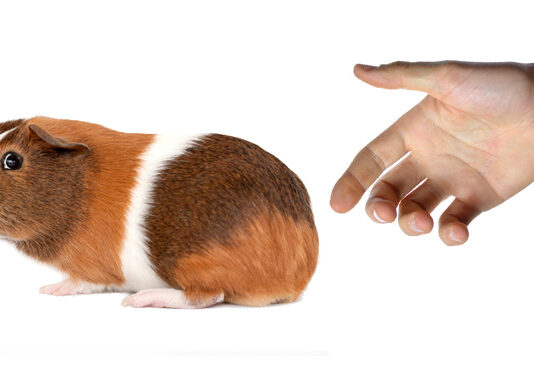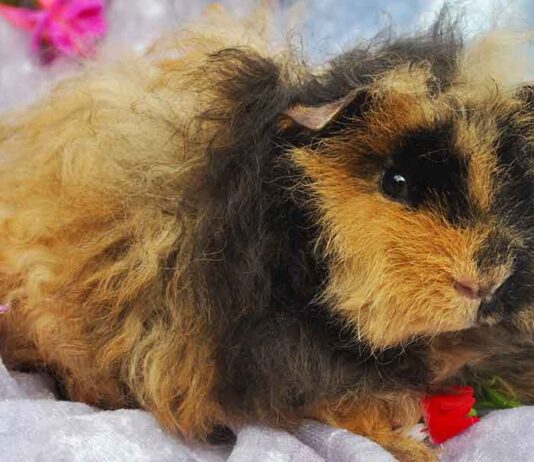This article answers a common cavy question: why do guinea pigs eat their poop? If you’ve clocked your pet carrying out this questionable behavior, don’t worry, it’s normal and actually a good thing. We’ll explain why.
Why do guinea pigs eat their...
If you’re new to cavy ownership, and wondering how long does it take to tame a guinea pig, then we’ll answer all your questions in this article. Including ‘do guinea pigs like to be held?’ and ‘how do guinea pigs show affection?’
Guinea pigs...
Black and white guinea pig names can be as cute, fun and cool as your new little pets. Today we'll share dozens of adorable ideas for naming your black and white guinea pig. Helping you to pick the best names for black and white guinea pigs and...
This is a complete, fully-researched guide to the Rex guinea pig breed. If you want to know what sets Rexes apart from other guinea pigs breeds, if they make friendly pets, and whether they’re easy to care for, then we’re here to help.
Rex...
Can guinea pigs eat pumpkin?
Small amounts of pumpkin are a safe occasional treat for guinea pigs.
Pumpkin contains vitamin C, which is important for guinea pigs. But it also contains sugars which can make them unwell.
Is...
The best guinea pig breed for one person may not be the same as for their neighbor.
The best breed of guinea pig for anyone depends upon the amount of time the have for things like grooming, the habitat they plan to keep them...
Choosing the best guinea pig names for your cavies is an important decision! The right name can show off just how cuddly and cute your piggy is, or how cool and unique they are. After all, every guinea pig owner knows that no two guineas are the...
It’s ok to not instinctively know how to hold a guinea pig for the first time.
Always pick up a guinea pig by approaching them sideways on, and scooping them up with both hands.
Keep one hand under their butt while...
Why is my guinea pig scared of me and how do I help her to relax?
Guinea pigs in the wild are prey animals, and spend a fair amount of their time avoiding being eaten.
So it’s hardly surprising that they are a little skittish, even in our safe domestic...
The MiniPli guinea pig is a new cavy breed being developed primarily in the United Kingdom.
Minipli guinea pigs have semi long length coats with tight curls that stand out from the body.
Since their numbers are currently low, it’s impossible...

